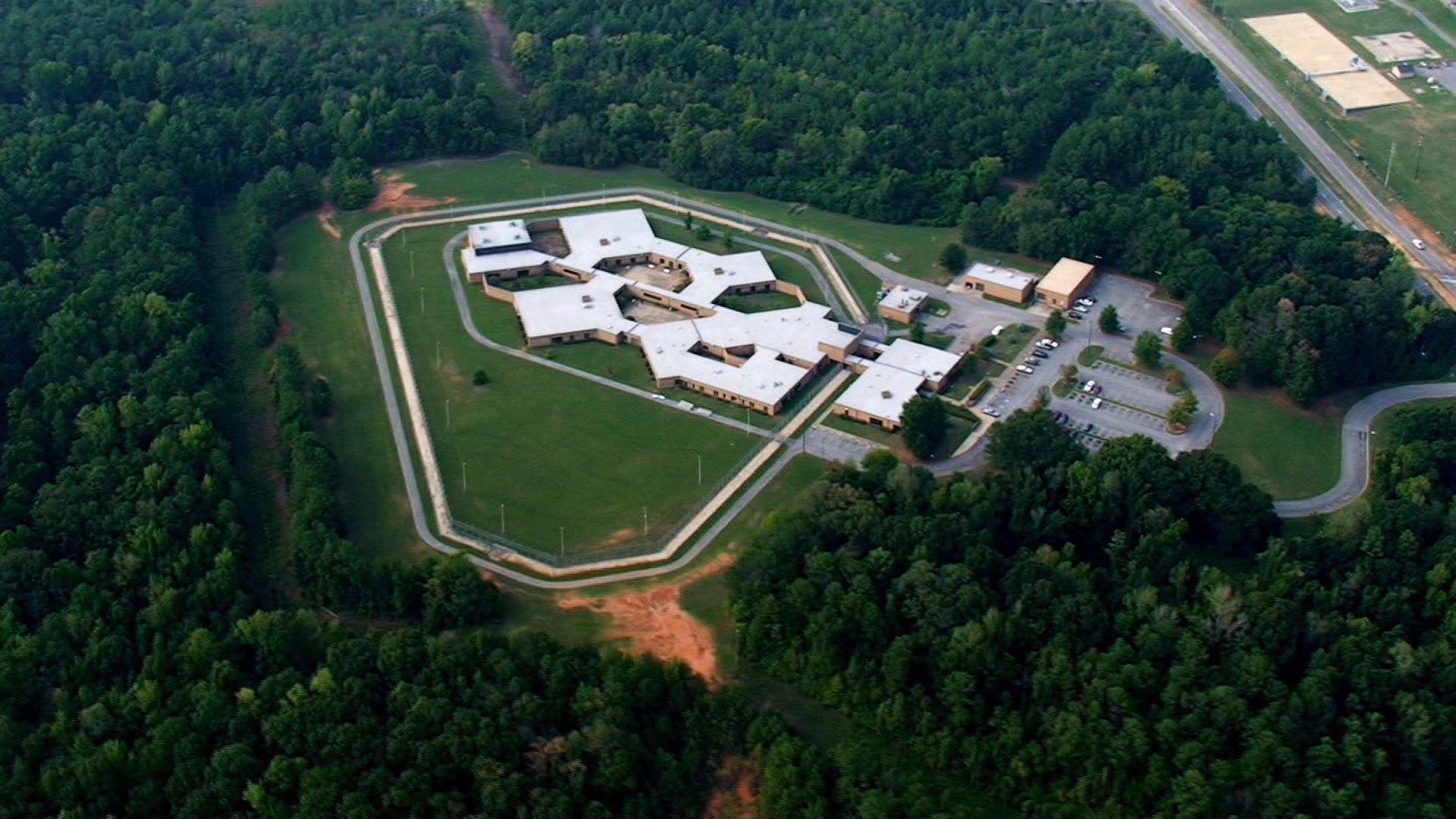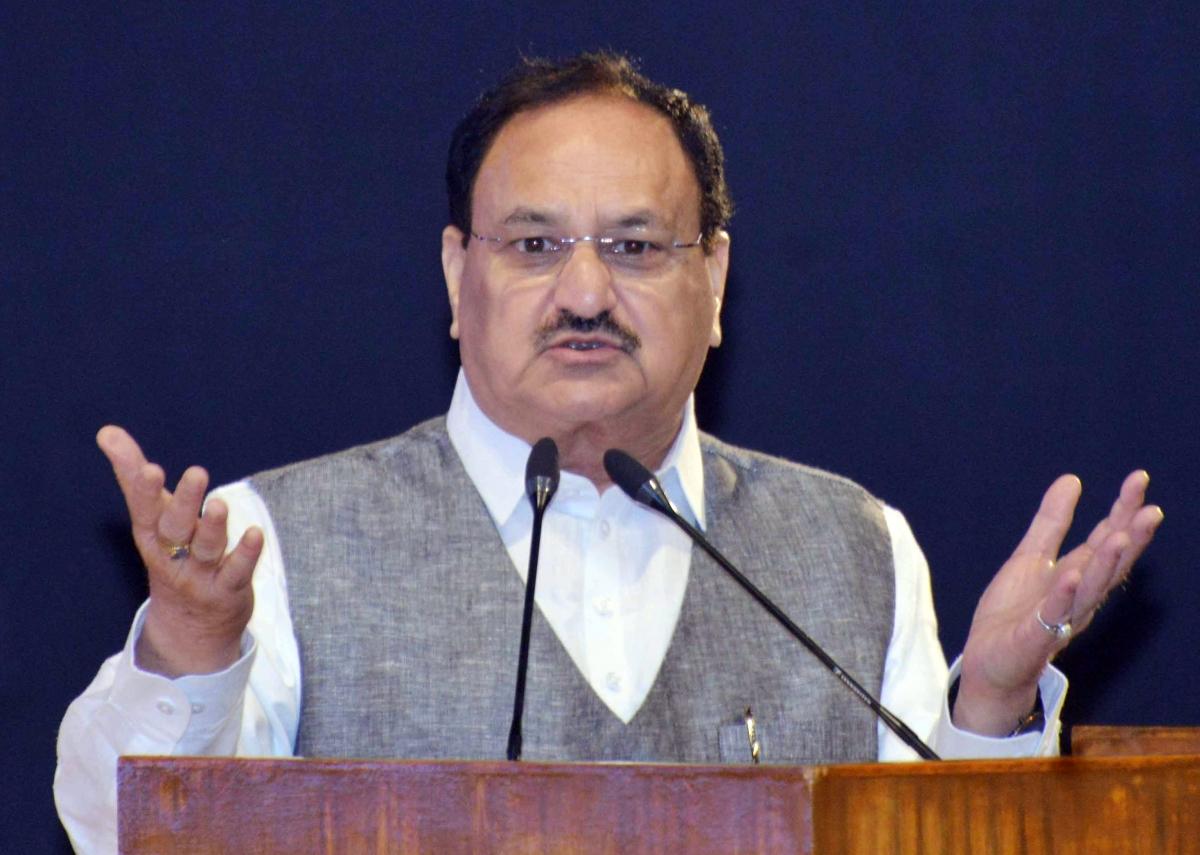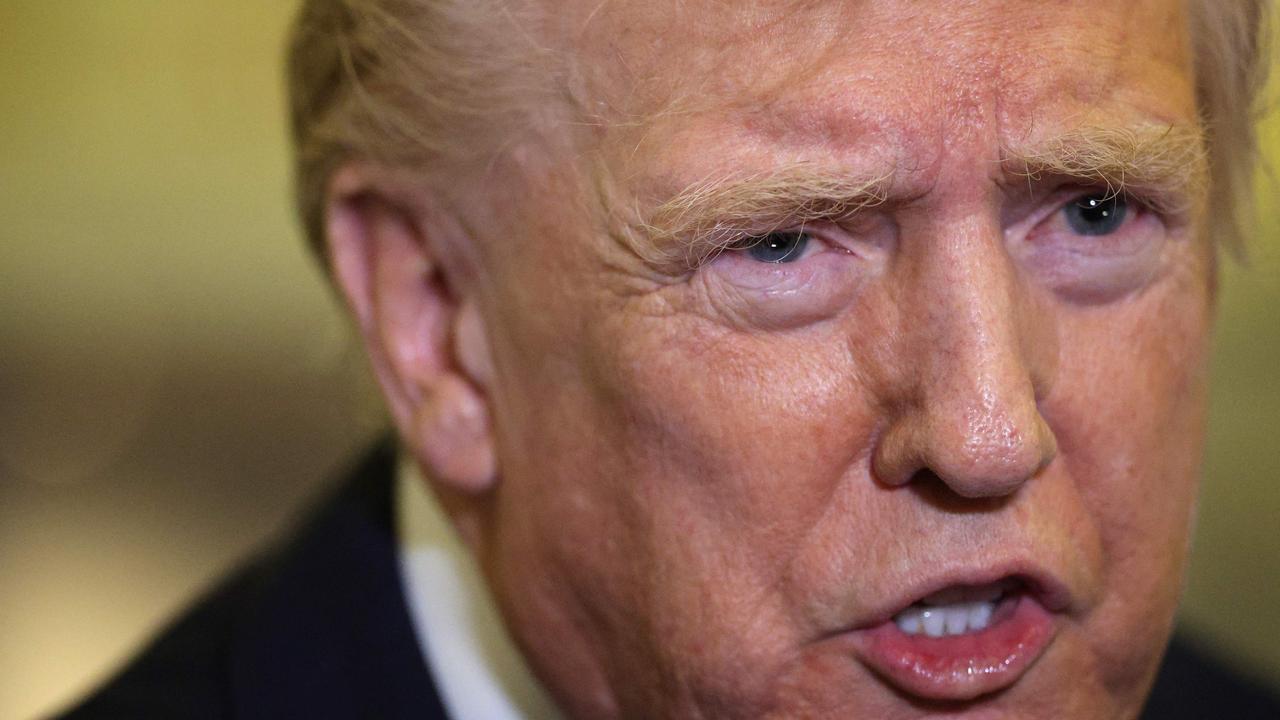Copyright therealnews

Republish this articleThis work is licensed under a Creative Commons Attribution-NoDerivatives 4.0 International License. We encourage republication of our original content. Please copy the HTML code in the textbox below, preserving the attribution and link to the article's original location, and only make minor cosmetic edits to the content on your site.Why more mega-prisons won’t fix Alabama’s crisis by Mansa Musa, The Real News Network November 3, 2025 Why more mega-prisons won’t fix Alabama’s crisis by Mansa Musa, The Real News Network November 3, 2025 https://youtu.be/s5xZecp1XX8 From chronic overcrowding and inmate deaths to systematic abuse and lawbreaking by corrections officers, prison conditions in the state of Alabama have reached a crisis point. And yet, state leaders continue to push an “Alabama solution” that involves building more mega-prisons and expanding qualified immunity for officers. In this episode of Rattling the Bars, host Mansa Musa speaks with Dakarai Larriett, a Democratic candidate for US Senate in Alabama, about about the true cost of Alabama’s carceral crisis and his vision for an alternative vision of criminal justice. Dakarai Larriett is a community leader, entrepreneur, and Democratic candidate for US Senate in Alabama Producer / Videographer / Post-Production: Cameron Granadino The following is a rushed transcript and may contain errors. A proofread version will be made available as soon as possible. Mansa Musa: Welcome to this edition of Rattling the Bars. I'm your host Mansa Musa. We've been hitting hard on covering what's going on down in Sweet Home, Alabama. We've been intentional about giving people a voice or turn the volume up on their voice about what they should be done in Alabama. What is the Alabama solution? This term came out of a documentary where prison system in Alabama was being highlighted, and when they confronted the governor with some of the realities of the abuse that was taking place in the Alabama prison system in general, and the fact that the United States Attorney General had issued a mandate that the conditions in Alabama were so horrendous that they had to do something about it, the governor respond was this is not a Justice Department solution. This is not the Justice Department responsible correcting. This is Alabama's responsibility for correcting. This is the Alabama solution. Joining me today is Dakarai Larriett, who developed his own solution as to where he think should be done with the state of Alabama prison system. Dakarai is in full disclosure, is running for the United States Senate in Alabama. We're not endorsing him. We're here to get him to get his views on what he deemed to be his solution to the Alabama crisis that's taking place in Sweet Home, Alabama. Welcome to Rallying the Bars, Dakari. Dakarai Larriett: Thank you, Mansa. It's so nice to be back with the Real News Network and really excited to talk about the Alabama solution today. Mansa Musa: And let's pick it right there. Okay, so let's start by educating our audience on what exactly your perspective is in terms of your political aspiration. Dakarai Larriett: Right. So I am a candidate for United States Senate and this part of this campaign really was about my own false arrest, and I am very familiar with broken criminal justice systems. I was falsely arrested up in Michigan, and I am the victim of an attempted drug planting by the Michigan State Police. So I know what happens when qualified immunity expands to the point that no one gets justice, and that's why I'm so worried about bills like HB 2 0 2, which recently passed here in Alabama, granting expanded qualified immunity not just to police, but also to corrections officers. Mansa Musa: Okay. Now talk about the composition of, because you're saying that you're running for United States Senator, right? So what seat, who is the incumbent and who's the proponents? Dakarai Larriett: So at this point, it is a wide open primary, both on the Republican and the Democratic side. Tommy Tuberville currently holds the seat. He is vacating this seat to run for governor. And if you remember back to 2017, Doug Jones won this very same Senate seat and was a democratic candidate from the great state of Alabama. So it is possible. Mansa Musa: Okay. And in terms of your perspective about when asked, what make you different from everybody else, because as it stand now, the reason why we seeing the Alabama Prisons industrial complex is the entire infrastructure is linked to it. It's like tentacles from an octopus. When you look at the Alabama criminal injustice system, when you look at the plantation, when you look at all these institutions that comprise of the Department of Correction in Alabama, all the tentacles are connected to industry on the street, food service plants, cheap labor, all so much so that our own investigation has revealed that parole is being denied prisoners because of cheap and free labor. So in this land, across this landscape, in this environment, what make you think that you're going to offer something that's going to change that narrative? That narrative been going on since the Civil War, since slavery? Dakarai Larriett: Right. So unlike my opponents, I'm not running in this race to enrich myself and to further this prison industrial complex. I've spent the last 20 years in public service. So initially in New York City advocating for our homeless and LGBT Youth of the South Bronx, I then went into harm reduction. So fighting the opioid crisis, and I have a lot of ideas around how we can turn our correction system truly into a place of restoration and offer drug treatment. And when I moved back to Alabama, I joined the board of the University of Alabama Alumni Association fighting for equitable access to education and cost-effective access to education. So again, I want to see our prisons become a place where we have vocational training and people can come out with reintegration and be productive members of the society. So these should not be as the governor says in the documentary places to warehouse people. Mansa Musa: Okay, let's pick up right there. Now, the current governor has said that, well, the way to get out of the conditions in the Alabama Criminal I justice system plantations in particular, the way to get out of it is to build your way out. So she had proposed and man is trying to get, and if I'm not mistaken, in the process of building mega prisons to absorb the current prison population and anybody else that she can round up to fill the empty cells. What's your views on that? Dakarai Larriett: Well, let me correct the point there. Mansa, my intelligence says that the three mega prisons, which are designed to consolidate the population, won't yield incremental beds. So there is no plan, there is no solution. This is not going to address overcrowding. And frankly, it sounds even more terrifying to have three mega prisons. One of the key issues here in state with our Department of Corrections is that we house nonviolent first time offenders who fly first, right? So there is an inflection point when those nonviolent first time offenders are about to exit and be released. They've served a couple of months and they get murdered. In 2024 alone, 277 people died in Alabama prisons. So building mega prisons, naming one after governor Kay Ivy is not the solution. Mansa Musa: Okay, let's talk about that. Now. The Justice Department had weighed in and incited the Alabama Department of Correction. The state of Alabama as it relates to the prison industrial complex, was in violation of violating people's amendment right to crude unusual punishment and mandated certain things take place. The governor and the attorney general, US Attorney General for the state of Alabama both ways in to say no, that they're not going to change that. This is the problem that confronting Alabama criminal justice system and the plantation isn't a Justice Department problem or a justice department have a voice, but it's an Alabama solution and Alabama have to resolve it. If you can't get the Justice Department, if you can't get the top cop of the United States to say something and have it enforced, then how do you plan as a political entity? How do you plan to get it enforced when you can't get the United States government, the federal government to enforce it, it got way more support than you as a candidate or an elected official would have. Dakarai Larriett: Yeah, it's a real conundrum and you can't even make this, it was actually the first Trump administration that brought the complaint under Attorney General sessions. So it is a well-known problem, it's a chronic problem, and I think the biggest thing we can do mansa, is create the public awareness and drive the accountability to the ballot box. And I spoke at the Prison Joint Legislative Oversight Committee meeting back in the spring and I expressed my concern to the legislators there, but we are going to have to bring even more people to the table and create a sense of urgency. And I heard just last week there was another prison oversight committee meeting. So many people turned up, they had to find a bigger room. So something is happening here in Alabama. Mansa Musa: Okay, let's pick up right there. Because in the documentary Alabama solution, they struck and they tried to bring and they had mobilized family members to participate in it. But in terms of the overall number of family members relative to the amount of people that's in incarcerated in the Alabama criminal justice system versus the horrendous condition they suffering, the numbers was not that big. What's your strategy for mobilizing people? Because if the people do take a position and stand together in the united front, then we got history that shows that these things work. But what's your strategy for mobilizing people and getting people to become more involved in understanding that their tax dollars is going to understand that the money could go elsewhere? Understanding that your family member is sentenced to death when they go into Alabama prison, they're not sentenced to three years, they sentenced to three years and maybe they might make it out alive. Dakarai Larriett: It's about communicating in our language as Albanians, and you brought up some really good points. Since 2020, the state has spent $57 million defending corrections officers for brutalizing torturing prisoners. It's unacceptable and it's misaligned with our values as Alabamians and many of us who profess to be Christians. So that is for starters. And what have I done? Even before this documentary came out, I reached out to you and created a number of viral videos on social media, galvanizing people and creating again, the sense of urgency and driving awareness to the documentary so that people really think about this is not who we want to be. And I've been calling out specifically Attorney General Steve Marshall, who is featured in the documentary. So he's been in office for eight, nine years. He's also running for United States Senate and he thinks that he's ready for a promotion after the most violent, suicidal, ridiculously inhumane criminal justice system in the country. So I am making a big stink about this, and every time he does an interview and talks about how great things are in Alabama, I take the interview, I add my comments, and I share it out and we're getting even more views than his original interviews. Mansa Musa: Let's talk about that because okay, granted, we recognize that it's real problematic in Alabama, that's not an understatement, that's a reality. But then you have all true conservative population. You have the sons of the south population, the daughters of the Confederate population, and how do you see them being impacted or how do you reach them to get them to understand that if your medical benefits don't have no color, your snap benefits don't have no color, your taxes don't have no color, that if you pull you in the same boat as everybody, how do you reach them? Or do you have a strategy to try to coalesce with other people that don't particularly have the same views that you have but might have views about economics and taxes? What's your strategy on reaching them? Dakarai Larriett: Yeah, so we started this campaign was a promise that we would listen, and that's what I've been doing for the last five, six months is listening to Alabamians. I pulled a number of alabamians, hundreds of alabamians to understand what their key concerns are. And as you said, it largely is economic. It is about education, healthcare, and the economy. And so that's where we are really focusing our messaging. And on my website, dari lariat.com, I talk about these issues each week and my plans. So I'm not just complaining, I'm creating legislative plans that I can literally lift and take to Washington that can literally become bills. One bill I've already drafted is call it the Motorist Bill of Rights. So again, that's not race specific. We all spend a lot of time on the roads and I think that we're learning just how vulnerable we are to law enforcement misbehavior when we're on the roads. So I've created a number of guidelines around transparency, release of information like body cam and dash cam and ensuring that it's done in a cost neutral way and very expediently so that we can get justice when things go wrong. And with regard to our prison system here in the state, I've created a six part plan around how we actually create a solution that is compliance with the Department of Justice. So ensuring that we have drug treatment programs, that we prevent the introduction of drugs into the facilities that we have vocational and educational programs and reentry, and ultimately make these truly departments of correction, right, not just warehousing people Mansa Musa: In terms of accountability, you have a high level of fentanyl use in Alabama prisons. Dakarai Larriett: Mansa Musa: You have a contraband being smuggled in that it's almost impossible to perceive or conceive that prisons that savvy, that they can get the volume of things that they got in there. Then you have that's one accountability as it relate to the staff and then they monitor, they profiting off of utilization of fentanyl. The other ask accountability I want you to address is the businesses, the Alabama plantation is monetized, that this is charitable slavery, this is free labor, and they're monetizing the labor by outsourcing to different corporations. So how do you address that now? Now you're talking about key businesses that's put money into the governor's C for putting money into the attorney general's C for because they making sure that they get blanc the labor and looked other way. So how do you address that and the fact that it's going to have an impact or will it have an impact on your ability to maintain or build a coalition? Dakarai Larriett: Great, great question. And the reality is as a democrat in the state of Alabama, you don't get business money unless you're up for reelection. It's very, very difficult and I think we have a really good opportunity to identify and call out the businesses that are part of this industrial complex. But in terms of accountability, there are two things that I have in my plan. First is a civilian oversight board. So I would love to bring families impacted by incarceration into the discussion. So many of those families you saw speak at the oversight committee meeting and the documentary, these would be great people to advise and investigate and address issues of abuse within the system. And then we need to have a complete legislative review of what's happening within the prison system end to end. So including the business processes, and there's been a lot of discussion about the denial of parole, so it's highlighted in the documentary, the rate has gone down so dramatically that it's almost impossible to get parole. Mansa Musa: So you see it, you've confronted with a monumental task in terms of coalition building and getting people to recognize the need to be in more aware and more proactive in terms of the electorate. But how do you, and I keep asking this question, how do you get when you dealing with a culture, the Alabama culture? When we looked at the Alabama solution, it wasn't so much as like black guy, white guy. Like the culture is I can make a lot of money selling drugs in prison and I can do it for impunity. The culture is, I can tell the governor or the commissioner of the corrections that I need a hundred laborers to work in this plant union bus. At the same time I get them the free labor. I don't have to pay them or give them the same benefits I give a union and I don't have to treat them the same way. And if they refuse to work, I can have them threaten to the point where they're going to work regardless. How do you see yourself having an impact on that? So much so that it will allow you to be able to, and I keep saying coalition, to build a type of coalition that can lead you to ultimately succeeding at your aspirations. Dakarai Larriett: So being totally pragmatic, we have a great deal of entrenchment and a lot of folks are making money off of this system, and one of the reasons that I'm running for a federal role is I see change happening from Washington with very clear guidelines that we've got to then enforce in oversight. So we've got to author the laws and then enforce 'em federally, and that's just what it's going to be. There is a coalition here. I am seeing screenings of this documentary pop up in every city around the state that awareness is building. Is it enough? Is it enough to get to 51%? Probably not. We're going to have to continue building and finding other constituency groups to win an election for sure. And again, driving change from federal legislation is going to be key. Mansa Musa: So in terms of electorate, in Alabama in particular, in the state of Maryland, it is 23 counties in the state of Maryland. In Maryland, the primary counties that have the most Democrat Electric is concentrated in eg. Prince George County. Prince George County, Montgomery County, Baltimore City. If you get and you hold your base, then more nine times 10, you become elected. When you ever look at the map, whenever they had governor's race, you see these counties surrounding everything else be read. So is reverse is reverse. In Alabama you have everything surrounding blue and blue might be make up like 10% of the electric. Unpack that for our audience. Dakarai Larriett: It's a challenging state for a Democrat. I live in Jefferson County, which is where Birmingham is. So this is the bluest of the blue you're going to get in the state and it's the biggest population center, so you have to win that. Then we have the black belt. So this is an area that has a very high black percentage of population and south Alabama, and then you have your blue dots, your cities like Huntsville, mobile, Montgomery. So that's how you do it. And then don't rule anyone out. So I've had discussions with farmers up in rural parts of the state, we're going to talk to everybody and we have a message for everyone. And it's about those kitchen table issues. Mansa Musa: It seems like this documentary and the attention that's being given on the prison industrial complex in Alabama, it seems like this is a golden opportunity for raising people's awareness about that system. But how do you parlay that into educating people, making the connection between that system and the economics and the social, political economic conditions of everyday Alabama? How do you get them to see the connection between the abuse that's taking place all the way across the board in terms of the monies that's being spent, tax dollars being wasted? How can you raise people, get people to see the connection to that? Or can you Dakarai Larriett: Oh, for sure, it's all a virtual cycle. And we talked a little bit earlier about $57 million. That's our money. That's money that could go into education infrastructure spent on defending corrections officers. So a lot of people are just stunned by that statistic. In the documentary, it also talks about we are going to be rating our education trust fund to build these prisons. So the prisons are overrunning in cost obviously, and that could have been anticipated. So again, stealing from Alabamans, this is our tax money. And then finally the safety piece. So our homicide rate here in the state is about 80% higher than the national homicide rate. So this administration, A IV and Steve Marshall, they've been in place for eight, nine years now. What they're doing is not working. It's not working. This is not a department of corrections. And building three mega prisons is not the recipe to make us safer. So I will be speaking again to policies that are evidence-based. Harm reduction is evidence-based, right? Vocational programs, educational programs, these are pathways to making our lives safer for all of us. And I think this touches every single Alabama. Mansa Musa: And so then in terms what you just say, maybe now look at from the side of the proponent, the governor and the attorney general, you're saying 85% homicide rate, that mean that public is not in their narrative, the public is not safe there. Ergo we need to build more prisons. If we got a high homicide rate, our solution to the homicide rate is to build mega prisons that would in turn take the people off the street that's committing these crimes. How do you answer that? Dakarai Larriett: Well, that's not their strategy because they're not adding more beds. So why are we building them just to have nicer buildings? It doesn't make sense. You can't map it out. You really can't make it make sense. So we've got to think about legislative solutions that work. So thinking about, for example, our gun problem here in the state, I am a gun owner, but I'm a responsible gun owner. We have a permitless, open carry, concealed carry here in the state. And ever since that bill was signed just a couple years ago, we've seen another escalation in the state in terms of violent crime. So we have so much low hanging fruit to pick from, improve the safety of the state, building more prisons and not addressing the basic issues within them doesn't seem to make a lot of sense. Mansa Musa: Okay, let's then answer this here. The state legislation body unanimously voted for to build more prisons unanimously voted for the fund, if I'm not mistaken. So now you at the US level, how you going to change that nerve? Because they already say as far, if you're not, if you with the federal government, then you are in opposition to state rights. And so if you are a federal representative, you are representing the interest of Alabama state rights. You coming in, you're basically saying, I'm subservient, I'm subservient to the legislative aspirations and goals of the state. So how do you as a federal representative, United States representative, how do you counter that intransigence that exists in the state? Dakarai Larriett: This role, as I envision it, is about advocating for the people of Alabama. And that's how I will pursue all legislation and decisions that I have to make each day. And when I think about the people of Alabama rating our education trust fund a strategy that doesn't make the state safer, I can't get behind that. So I have a lot of concerns about the strategy moving forward. I'm yet to hear about programs within these facilities that will ultimately yield better results for the people of Alabama. Those basic things like civilian oversight boards, legislative reviews around our policies, and considering a repeal of HB 2 0 2. So expanding qualified immunity to corrections officers versus actually fixing the problem than the systems. So these are the types of issues that while many of them are state's rights and you're on the mark there, in this role, I would be able to play the bully pulpit and advocate for policies that are more fair and equitable for all alabamians. Mansa Musa: And then as we wrap this up, how do you see court building a relationship with some of the state delegates, some of the state municipalities, some of the city council persons and the mayors in some of these towns that you are going to be campaigning? How do you see being able to make inroads in getting them to understand that the Alabama solution is a people solution and not the ENT Jim Crow thought process that's now taking place? Dakarai Larriett: You're right. It starts with listening, and that's what I've been doing. We have 67 counties here. So I like to say I'm on a 67 county listening tour, and I've already started forming those relationships as someone who's just active in my community as a volunteer, and I have relationships with our sheriff and with our police chief. So these are the types of folks that I want to bring to the table as we think about rules and policy moving forward that truly prioritizes the people of Alabama and doesn't criminalize, for example, a mental health crisis. And we're seeing more and more activity in that space here in Jefferson County and where I live in Birmingham. So I like to see that expand across the state and then moving to our Mansa Musa: Prisons. One last question is what's the impact that the government shutdown is having on the state of Alabama in the District of Columbia, Baltimore Snap benefits going to be cut off next month. They got people, they doing a lot of volunteer work around food banks and things of this nature. This is in urban America. What's the impact that it's having on the state of Alabama? Dakarai Larriett: Yeah, it's so sad that we cannot maintain a function of government and it's truly a failure of the legislative branch. That's what it is. Full stop. Now, I'm a driver for Meals on Wheels, so I'm out in the community regularly and I get to see folks who are food insecure in the state of Alabama, one out of seven people. That's a huge number, rely upon snap, also known as food stamps. So this is going to be a big, big deal. And again, we talked a little bit earlier about how do we make this relatable to people who don't see, for example, the impact of food stamps or SNAP or the prison system in their daily lives. These dollars move into our economy immediately. These individuals aren't saving their SNAP benefits, they are spending them. So we are going to see a trickle down problem very, very quickly here in state. And I'm so concerned about that. And I'll be out on the road soon serving our seniors and ensuring that they have quality meals during this time Mansa Musa: Period. And Dari, Larry, thank you for this enlightening and educational conversation. Tell our audience how they can keep up with what you're doing. Dakarai Larriett: Yeah, so check me out@darilariat.com. You can also see us on any social media platform under Dari Lariat for Senate. And we are looking for volunteers. We're looking for donations. We'll be starting phone banking pretty soon to get out the vote and create awareness here in Alabama. And you can phone bank from anywhere in the United States, so can't wait to hear from everybody. Mansa Musa: You have it. Ka Lariat. We had an example of Harold Washington out of Chicago that shook up the political structure. We got Ani in New York. That's shaking up the political structure. We have people throughout this country that invest in the political process with the vision of changing the narrative. We hope that you listen to this interview with Dakari laureate and weigh in on what you think the solution is in Alabama. We ask that you continue to support the real news and rallying the bars. We ask that you go give your donations. We ask that you continue to view critique our coverage of different events such as the Alabama situation. But more importantly, we ask that you continue to chime in on what's going on with the Real News because guess what? We're actually the real news. Thank you, Dakarai. Thank you so much. Mans. This article first appeared on The Real News Network and is republished here under a Creative Commons Attribution-NoDerivatives 4.0 International License.



